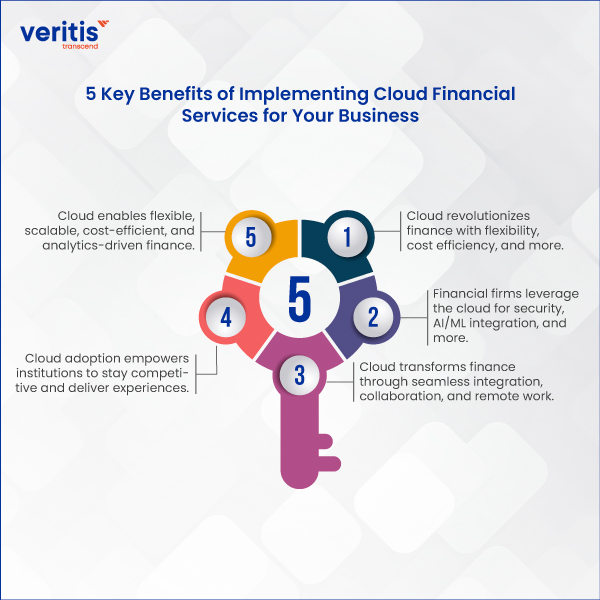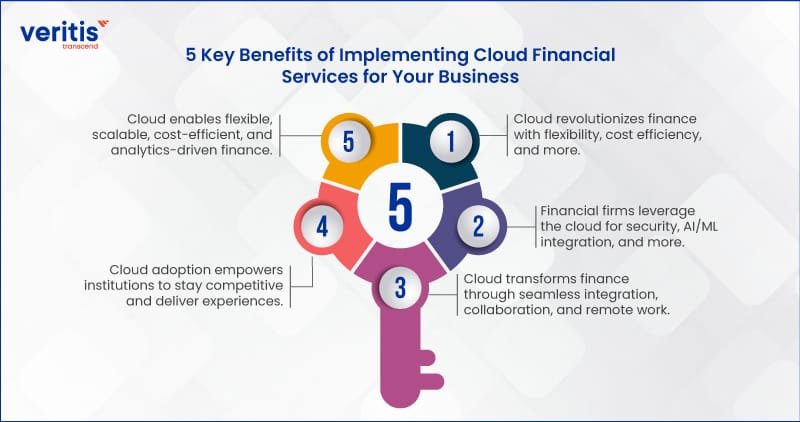Scalable cloud services offer flexibility and cost efficiency. They adapt to your needs effortlessly.
Scalable cloud services integration is essential for modern businesses. It enables companies to handle varying workloads with ease. This flexibility ensures that resources are available when needed, without unnecessary costs. Businesses can scale up during peak times and scale down during slower periods.
This adaptability leads to better resource management and cost savings. Additionally, scalable cloud services enhance performance and reliability. They support business growth by providing the infrastructure required to handle increased demands. By integrating scalable cloud services, businesses can stay competitive, respond quickly to market changes, and optimize their operations effectively.

Credit: nakisa.com
Introduction To Scalable Cloud Services
Scalable cloud services have revolutionized how businesses operate. They offer flexibility, cost-efficiency, and growth opportunities. Whether you are a small startup or a large enterprise, scalable cloud services provide the tools needed to thrive in today’s digital landscape.
What Are Scalable Cloud Services
Scalable cloud services allow businesses to expand their resources easily. You can increase or decrease your usage based on your needs. This means paying only for what you use. These services include storage, computing power, and data management.
Here are some key features of scalable cloud services:
- Elasticity: Adjust resources quickly to meet demand.
- Cost-effectiveness: Pay-as-you-go pricing models.
- Accessibility: Access services from anywhere with an internet connection.
Importance In Modern Business
Scalable cloud services play a critical role in modern business. They ensure that businesses can handle growth without a hitch. Here are some reasons why they are important:
- Flexibility: Adapt to changing business needs easily.
- Cost Savings: Reduce capital expenditure on hardware.
- Performance: Enhance operational efficiency and speed.
In today’s fast-paced world, businesses must stay agile. Scalable cloud services offer the agility needed to stay competitive. They allow for seamless integration with existing systems. This leads to improved productivity and innovation.
| Feature | Benefit |
|---|---|
| Elasticity | Quickly adjust resources to meet demand |
| Cost-effectiveness | Pay only for what you use |
| Accessibility | Access from anywhere with internet |

Credit: tangenz.com
Enhanced Flexibility
Scalable cloud services integration provides numerous benefits. One major advantage is enhanced flexibility. Businesses can adjust to changes quickly and efficiently. This flexibility allows companies to stay competitive and responsive.
Adapt To Changing Needs
Businesses face constant changes. Markets evolve, and customer demands shift. With scalable cloud services, companies can adapt to changing needs easily. They can scale resources up or down based on current demand.
- Quickly increase resources during peak times
- Reduce resources when demand is low
- Ensure optimal performance at all times
This adaptability helps businesses avoid over-provisioning and under-provisioning resources. It ensures cost-efficiency and better resource management.
Customizable Solutions
Scalable cloud services offer customizable solutions. Businesses can tailor the services to fit their specific needs. This customization helps in creating an ideal environment for operations.
Here are some ways customizable solutions benefit businesses:
- Choose the right mix of services
- Adjust configurations as required
- Integrate with existing systems seamlessly
Customizable solutions ensure that businesses get the most out of their cloud services. They provide the flexibility needed to support unique business requirements.
Moreover, scalable cloud services integration allows for easy updates and upgrades. This keeps the systems current and efficient. Businesses can incorporate new technologies without significant disruptions.
In summary, enhanced flexibility through scalable cloud services integration is invaluable. It allows businesses to adapt and customize solutions to stay ahead.
Cost Efficiency
Scalable cloud services offer numerous advantages, but one of the most compelling is cost efficiency. Companies can save money while enhancing their operations. Let’s explore how this is achieved.
Pay-as-you-go Model
The pay-as-you-go model allows businesses to pay only for what they use. There’s no need for large upfront investments. This model is flexible and adjusts to the needs of the business.
- Eliminates wasteful spending on unused resources.
- Provides financial flexibility for small and large businesses.
- Allows scaling up or down based on current needs.
Reduced Operational Costs
Scalable cloud services can significantly reduce operational costs. There’s no need for physical servers and hardware. This reduces maintenance and utility costs.
Here’s a table illustrating the potential savings:
| Cost Component | Traditional IT | Scalable Cloud |
|---|---|---|
| Hardware | $10,000 | $0 |
| Maintenance | $5,000/year | $0 |
| Utilities | $2,000/year | $0 |
By adopting scalable cloud services, companies can focus on innovation and growth.
Improved Performance
Scalable cloud services integration offers numerous benefits, with improved performance being a standout. Performance enhancements help businesses operate efficiently and effectively. Faster processing speeds and optimized systems lead to better user experiences and business outcomes.
Optimized Resource Allocation
Scalable cloud services allow for optimized resource allocation. Resources are allocated based on demand, ensuring efficient use. This means no wasted resources during low-demand periods. It also means that additional resources are instantly available during peak times.
Optimized allocation enhances system performance and reduces costs. Businesses can focus on strategic growth rather than managing resources.
Reduced Downtime
Scalable cloud services significantly reduce downtime. Cloud infrastructure is designed for high availability. It uses multiple data centers and redundancy measures. If one server fails, another takes over seamlessly.
This results in fewer disruptions for users. Reduced downtime means higher customer satisfaction and trust. Businesses maintain productivity and avoid costly outages.
| Benefit | Description |
|---|---|
| Optimized Resource Allocation | Efficient use of resources based on demand. |
| Reduced Downtime | High availability and minimal disruptions. |
By integrating scalable cloud services, businesses achieve better performance. This leads to growth and success in a competitive environment.
Scalability Benefits
Scalable cloud services offer numerous advantages to businesses of all sizes. One of the most significant benefits is the ability to handle fluctuations in demand. This flexibility ensures your infrastructure can grow with your business. Let’s dive into the specific scalability benefits that make cloud services a smart choice.
Handling Increased Workload
With scalable cloud services, you can easily manage increased workloads. No more stress during peak times. The cloud adapts to your needs without manual intervention. This means your system can handle traffic spikes effortlessly.
Scalable cloud services ensure consistent performance. Even during high demand periods, your users experience smooth operations. This reliability boosts user satisfaction and retention.
Here’s a simple table showing how cloud scalability impacts workload management:
| Traditional Infrastructure | Scalable Cloud Infrastructure |
|---|---|
| Fixed capacity | Adaptive capacity |
| Manual scaling | Automatic scaling |
| High maintenance costs | Cost-efficient |
Future-proof Infrastructure
Scalable cloud services prepare your business for the future. They offer a foundation that grows with your needs. No need for major overhauls as your business expands.
Future-proofing your infrastructure saves time and resources. You can focus on innovation rather than constant upgrades. This proactive approach ensures long-term business success.
Consider these key advantages of future-proof cloud infrastructure:
- Seamless integration with new technologies
- Reduced downtime and disruptions
- Scalable storage and computing power
Better Collaboration
Scalable cloud services improve teamwork in many ways. They help team members communicate better and work together more efficiently. Cloud services make it easy to share files and work on projects together. Let’s explore how scalable cloud services enhance collaboration.
Streamlined Team Communication
Effective communication is key for any team. Cloud services offer tools like instant messaging and video calls. These tools help team members talk in real-time. Teams can share ideas and solve problems quickly. Instant messaging tools keep everyone updated. Video calls make meetings easy, even if team members are far apart.
Here are some benefits of using cloud-based communication tools:
- Real-time updates: Instant messaging ensures everyone is on the same page.
- Virtual meetings: Video calls bring the team together, no matter the location.
- File sharing: Easily share documents and files with the whole team.
Enhanced Remote Work Capabilities
Remote work is becoming more common. Cloud services support this trend by offering tools for remote collaboration. Team members can access their work from anywhere. This flexibility is important for maintaining productivity. Workers can complete tasks from home, a café, or even on vacation.
Consider these advantages of cloud services for remote work:
- Access from anywhere: Work on projects from any location.
- Flexible schedules: Team members can choose their own hours.
- Project management tools: Keep track of tasks and deadlines easily.
Scalable cloud services make it easier for teams to work together. They improve communication and support remote work. These benefits lead to better collaboration and increased productivity.
Security Enhancements
Scalable cloud services offer many benefits, with security enhancements being a key advantage. Businesses can protect their data better and stay compliant with regulations. Learn how cloud services boost security in various ways.
Robust Data Protection
Cloud services provide advanced encryption methods to safeguard data. Encryption ensures that only authorized users can access sensitive information. Cloud providers also use firewalls to prevent unauthorized access. Regular security updates keep the systems secure.
- Data encryption ensures privacy
- Firewalls block unauthorized access
- Regular updates strengthen security
Compliance With Regulations
Many industries have strict regulations for data protection. Cloud services help businesses meet these requirements. Providers offer compliance with standards like GDPR and HIPAA. This reduces the risk of legal issues.
| Regulation | Description |
|---|---|
| GDPR | General Data Protection Regulation for Europe |
| HIPAA | Health Insurance Portability and Accountability Act |
Cloud services also offer audit trails. These trails help track data access and changes. This ensures transparency and accountability.
- Meet industry regulations
- Reduce legal risks
- Ensure transparency with audit trails

Credit: www.veritis.com
Case Studies
Scalable cloud services offer numerous benefits to businesses. Real-life case studies highlight success stories and lessons learned. These examples show how companies thrive with cloud integration.
Success Stories
Many companies have improved operations through cloud services. Here are some success stories:
- Company A: This retail giant scaled its operations during peak seasons. They used cloud services to handle increased traffic. Sales surged by 30%.
- Company B: A startup in the tech industry leveraged cloud solutions. They reduced infrastructure costs by 50%. This allowed them to invest in innovation.
- Company C: This healthcare provider integrated cloud-based patient records. It improved patient care and data accessibility. Efficiency increased by 40%.
Lessons Learned
These case studies also provide valuable lessons:
- Plan for Scalability: Ensure your cloud solutions can grow with your business.
- Monitor Performance: Regularly check cloud service performance. Adjust as needed.
- Train Employees: Invest in training for staff. They should understand how to use cloud tools effectively.
The benefits of integrating scalable cloud services are clear. Success stories and lessons learned help guide businesses. They can achieve operational efficiency and cost savings.
Future Trends
Scalable cloud services integration is evolving rapidly. Understanding future trends helps businesses stay ahead. This section explores emerging technologies and predictions for cloud integration.
Emerging Technologies
New technologies are reshaping cloud services. These innovations bring new benefits and opportunities.
- Artificial Intelligence (AI): AI optimizes data processing. It enhances service delivery and automation.
- Internet of Things (IoT): IoT devices generate vast amounts of data. Cloud services manage and analyze this data effectively.
- 5G Networks: 5G provides faster, more reliable connections. This boosts cloud service performance and accessibility.
Predictions For Cloud Integration
Experts predict several trends in cloud integration. These trends will shape the future of cloud services.
- Increased Hybrid Cloud Adoption: Businesses will use both public and private clouds. This offers flexibility and security.
- Greater Focus on Security: Enhanced security measures will protect data. This ensures compliance with regulations.
- More Automation: Automation will streamline operations. It reduces manual tasks and improves efficiency.
Understanding these trends helps businesses adapt. Embracing new technologies and predictions ensures success in cloud integration.
Frequently Asked Questions
What Are Scalable Cloud Services?
Scalable cloud services adapt to your needs by growing or shrinking resources. They help manage varying workloads efficiently. This flexibility ensures optimal performance.
Why Integrate Scalable Cloud Services?
Integrating scalable cloud services enhances efficiency, reduces costs, and improves performance. It allows businesses to handle traffic spikes and growth seamlessly.
How Do Scalable Cloud Services Save Costs?
Scalable cloud services save costs by allocating resources based on demand. This eliminates the need for overprovisioning, reducing unnecessary expenses.
What Industries Benefit From Scalable Cloud Services?
Industries like e-commerce, healthcare, finance, and education benefit from scalable cloud services. They manage fluctuating workloads and enhance customer experiences.
Conclusion
Scalable cloud services offer numerous benefits for businesses. They enhance flexibility, reduce costs, and improve efficiency. Businesses can easily adapt to changing demands. This results in better performance and growth opportunities. Integrating scalable cloud services is a smart move for any company.
It ensures a competitive edge in the market.





